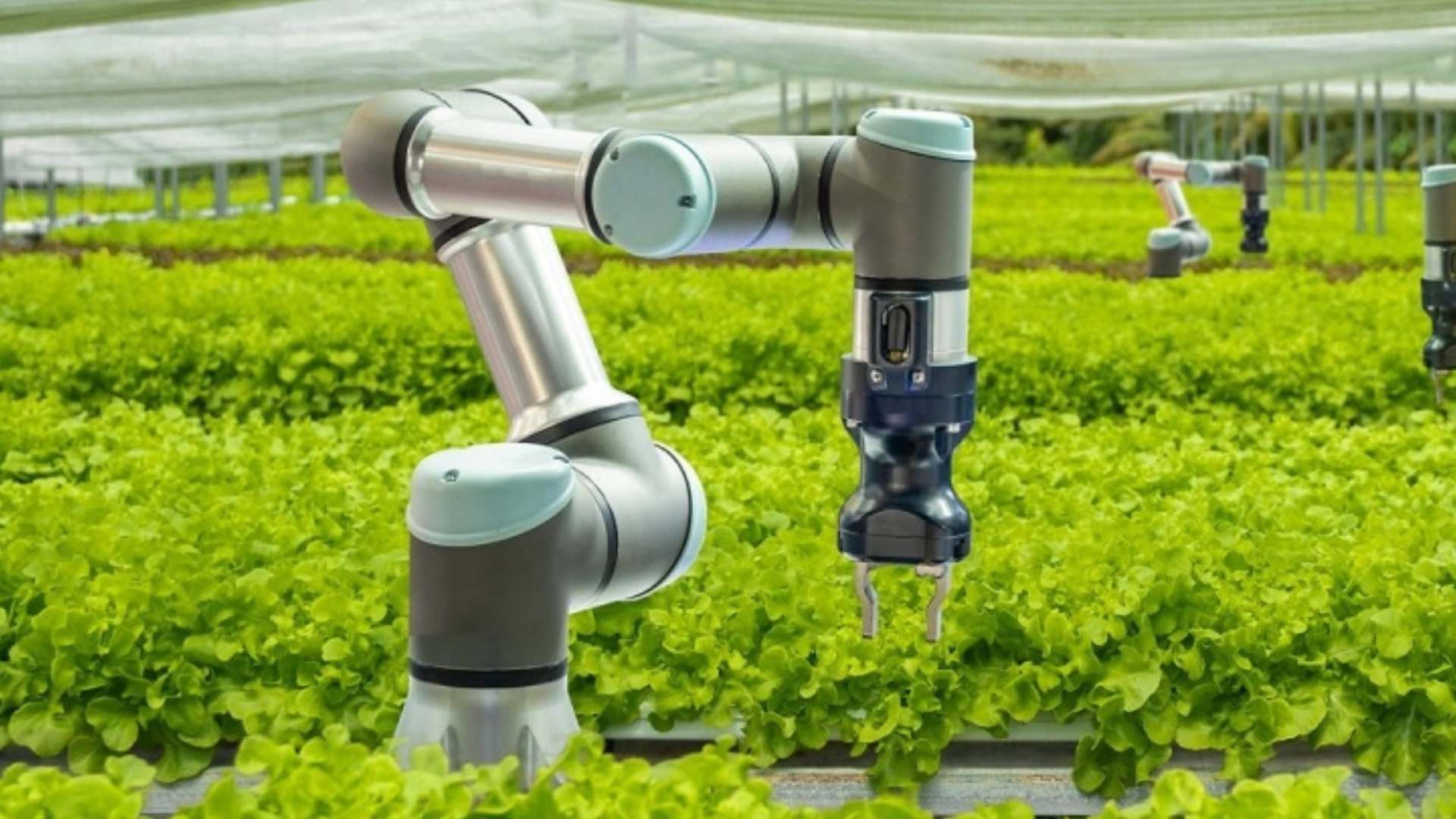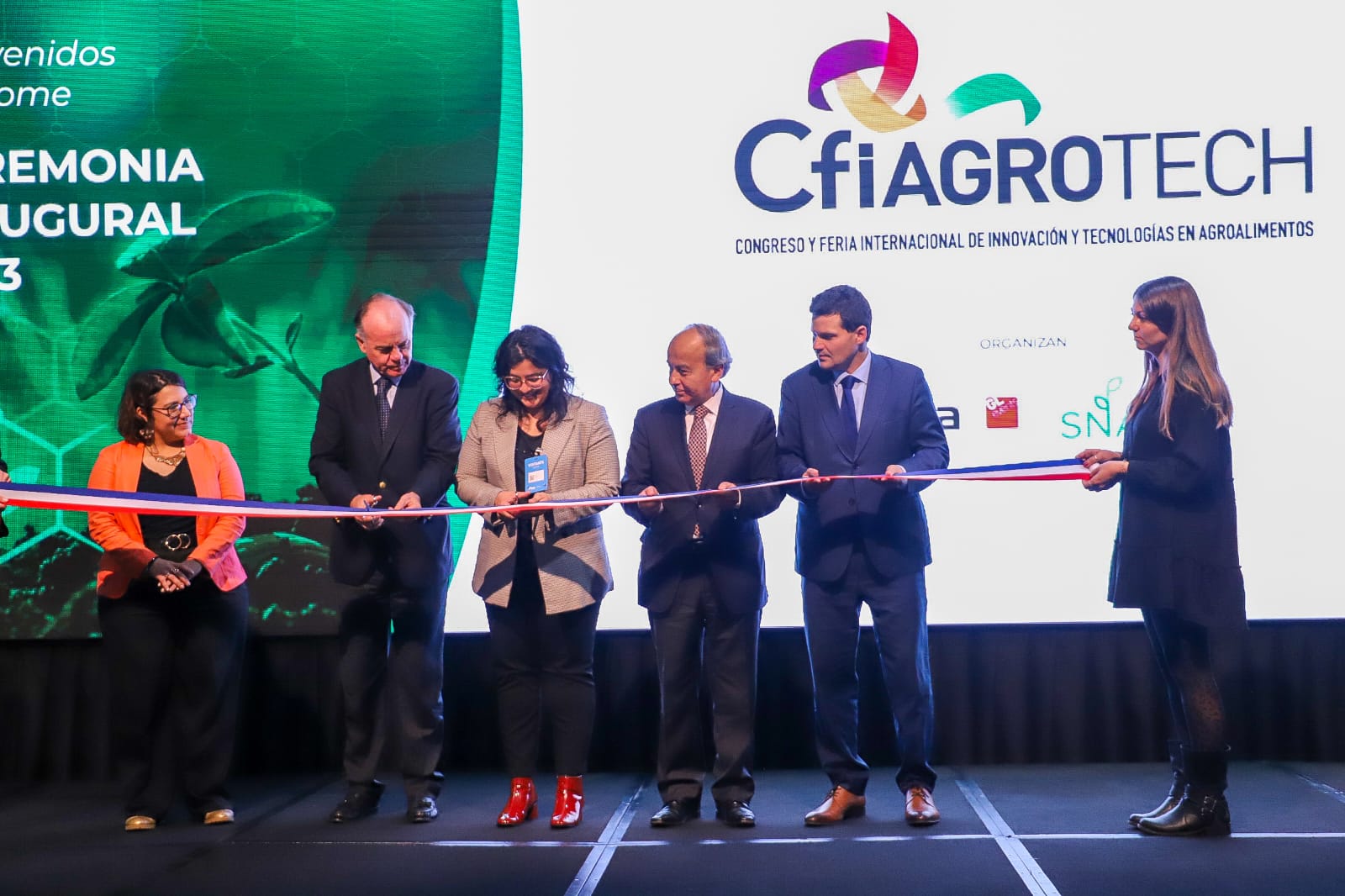
Erik Pekkeriet, director of the Agri-Food Robotics Program at Wageningen University & Research, Netherlands, and Vincent Doumeziel, senior advisor for Oceans and Food of the UN Global Compact in the United States. Santiago, July 19, 2023 – Preparations are advancing for the First International Congress and Fair on Innovation and Technologies in Agri-Food, CfiaAgrotech 2023, which will bring together the most relevant actors of the national and global agri-food industry. Metropolitan Santiago will be the venue for the convention that will bring together, between October 24 and 26, renowned Chilean and foreign experts, who will participate in various panels to present the new trends in agrotech. Among the topics to be addressed at the International Congress are “R&D needs from producers”; “Solutions from innovation and technology”; “Regenerative agriculture: Beyond sustainability”; “ESG reporting and green finance”; “Logistics and distribution in the era of data science”; “IOT innovations in traceability”; “Robotics and automation in agri-food” and “Food safety, new market trends”. The meeting will conclude with two panels “Digitalization and digital transformation in industry 5.0” and “The future of food production: new production logics”. Among the renowned speakers attending the congress are Erik Pekkeriet, director of the Agri-Food Robotics Program at Wageningen University & Research, The Netherlands, and Vincent Doumeziel, Senior Advisor for Oceans and Food at the United Nations Global Compact, United States. AGRO FOOD ROBOTICS “In this era, where we face climate change, biodiversity loss, overpopulation and malnutrition in urban societies, agriculture and technology have never been so relevant or so closely connected. It is like mining gold, with a lot of gold, which will make it possible to solve major challenges and opportunities for society. In this scenario, CfiAgrotech seems to me to be the right gold mine,” says Erik Pekkeriet. The expert, who has a proven track record, in the last decade expanded the scope of robotics from open-field greenhouse horticulture to livestock, aquaculture and the food sector in the Netherlands. Today, he leads the agilent team of the Agri-Food Robotics Program at Wageningen University & Research. He is also in charge of the management of the Agro Food Robotics program and chairs the thematic group on Agricultural Robotics at EU Robotics and the thematic group on Greenhouse Horticulture at the Dutch Society for Technology in Agriculture. In addition, he is a member of the Advisory Board of the European Machine Vision Forum and founder and coordinator of the European Digital Innovation Center network on Robotics, called agROBOfood. A mechanical engineer at NHL-Stenden University of Applied Sciences in Emmen, Pekkeriet has been linked to agribusiness since 1996, when he joined the innovation management team at Greenhouse Horticulture, where he built and managed a department of innovation consultants. Later, he joined Wageningen University & Research, where he built large robots, vision sorting systems and new greenhouse production systems for farmers and machinery manufacturers. He also coordinated the EU-funded PicknPack project, which developed a line of flexible robotic packaging systems for quality assessment and packaging of fresh and processed food products. THE FUTURE LIES IN SEAWEED Meanwhile, Vincent Doumeziel, Director of the Food Program at the UK-based charity Lloyd’s Register Foundation, is currently Senior Advisor on Oceans and Food for the United Nations Global Compact (UNGC). Among his activities, he develops multinational and public-private partnerships to support ocean-based solutions, and in particular macroalgae, to address some of the world’s challenges such as hunger, plastic pollution, global warming and ocean acidification, among others. Doumeziel leads the Global Seaweed Coalition, an international partnership established by the Lloyd’s Register Foundation in association with the UNGC and the Centre National de la Recherche Scientifique (CNRS), to monitor the safety and sustainability of the seaweed industry. “Seaweeds, some 12,000 types in total, are the key to a variety of world problems, such as hunger and global warming, if they could have the opportunity to show what they can do,” said Vincent Doumeizel, in an interview published on the UN Global Compact website. The expert affirms that algae are the greatest untapped resource we have on the planet. Rich in protein, with proven antibiotic and antimicrobial properties, algae are a source of animal feed. They can also be used as biostimulants, to improve crop yields and enrich the soil. In addition, they have a high impact on reducing methane emissions from livestock. It was found that, with just a pinch of a red algae added to ruminant feed, cattle reduce their methane emission (a greenhouse gas related to global warming) by up to 90%. The expert argues that the key to a future that reaps the benefits of seaweed is to avoid making the same mistakes that were made with land-based agriculture: monoculture, genetically modified organisms and industrial agriculture. Instead, he explains, it is necessary to create regenerative and sustainable aquaculture systems. These and other high-level exhibitors will be present at the First International Congress and Fair of Innovation and Technologies in Agri-Food, CFIAgrotech, organized by FISA, of the GL events Group, and the National Society of Agriculture (SNA), with the sponsorship of important national guilds of the agri-food sector and institutions that promote foreign investment in the country and the sustainable growth of the Chilean food industry. Among the entities are: ASOEX, Chilealimentos, ChileCarne, Fedefruta, Fedeleche, InvestChile, Vinos de Chile, Transforma Alimentos, BDP Foods and the National Irrigation Commission, among others. For more information, contact e-mail: info@cfiagrotech.cl. PRESS CONTACT: Cristián Larraín/ clarrain@fisa.cl +569 5208 7993



 Related News
Related News CAS: AI in the food industry, innovation and sustainability
CAS: AI in the food industry, innovation and sustainability
 CFIAGROTECH 2023 ENDS ITS FIRST VERSION WITH A SUCCESSFUL BALANCE AND THE RECOGNITION OF AGRICULTURAL STAKEHOLDERS
CFIAGROTECH 2023 ENDS ITS FIRST VERSION WITH A SUCCESSFUL BALANCE AND THE RECOGNITION OF AGRICULTURAL STAKEHOLDERS
 Wines of Chile will be part of CFIAgrotech 2023.
Wines of Chile will be part of CFIAgrotech 2023.
